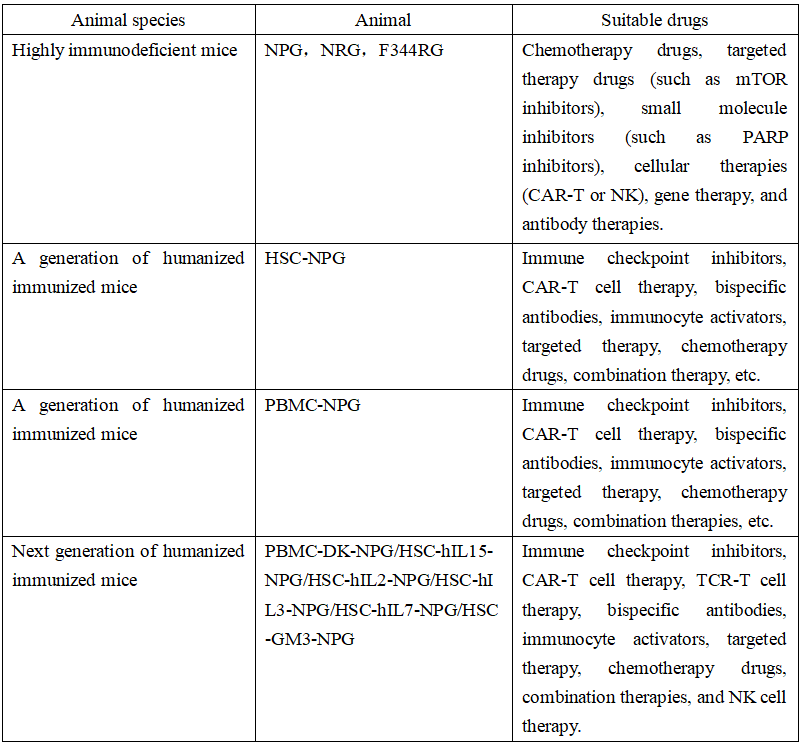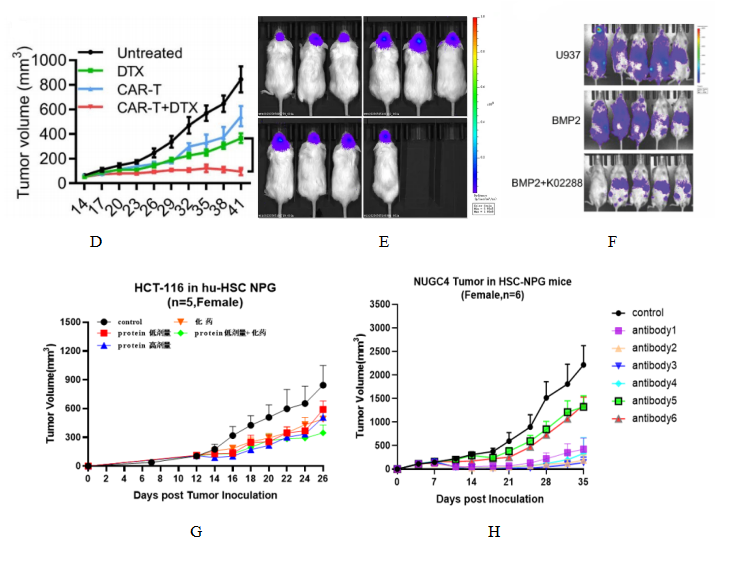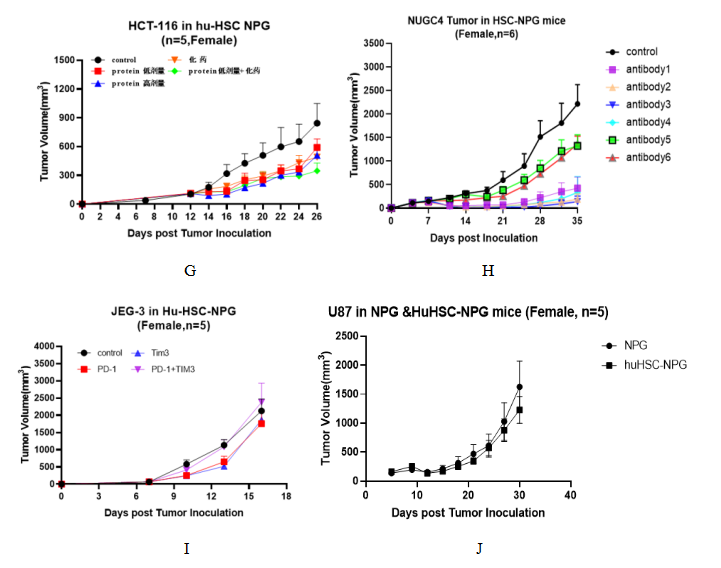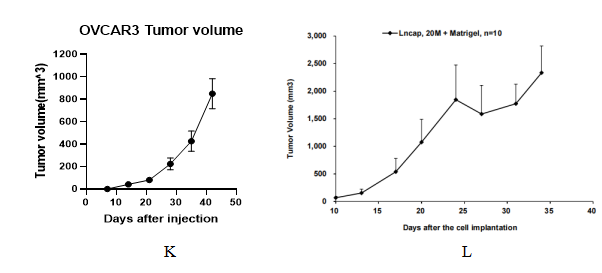Xenograft tumor transplantation refers to a technique where human tumor cells or tissues are transplanted into immunodeficient mice or other animal models for research. It has three major advantages: human relevance, flexibility and speed, and controllability.
Human relevance is demonstrated by the direct use of human tumor cells or tissues, which better reflect the biological characteristics and therapeutic responses of human tumors; flexibility is shown by the ability to use different types and sources of tumor cells or tissues to establish various types of tumor models, adapting to different research needs; speed and controllability are reflected in the shorter establishment time compared to spontaneous tumor models, while also allowing precise control over the amount and location of tumor cell injection, facilitating the study of tumor behavior under specific conditions. Establishing xenograft tumor transplantation can be used for research on the efficacy of innovative drugs and mechanisms of drug resistance, the tumor microenvironment and tumor growth and metastasis, as well as for screening personalized treatment plans using patient-derived PDX models.
(1)Experienced in xenograft tumor transplantation
We has established a rich database of PDX and CDX xenograft tumor transplantation in highly immunodeficient mice such as NPG and F344RG, as well as in humanized immune system mice. We offer more than 200 validated and well-characterized CDX models, including subcutaneous transplantation models, orthotopic transplantation models, tail vein transplantation models, and tumor metastasis models, among others.
Currently, our xenograft tumor transplantation models is comprehensive, including various solid tumors and hematological malignancies, and we continue to enrich our tumor experience database. As a CRO company, we provides a one-stop service that includes cell culture, tumor modeling, dosing, tumor measurement, in vivo imaging, sampling, and tumor-related detection and analysis. The table below lists some of the mature CDX tumor types that Weitongda has developed.

Currently, we has a comprehensive range of animal models suitable for xenograft tumor transplantation, with high success rates and extensive experience in tumor engraftment. We can recommend a series of animal models that are more compatible with tumor engraftment and drug treatment according to your type of tumor or drug, by referring to our tumor experience database, thereby increasing the probability of successful drug translation.

(2)CDX tumor-forming experience




Fig 1. Heterologous tumor transplantation in NPG, HSC-NPG and F344RG rats
Note: A-E: NPG was inoculated with H1975 human lung adenocarcinoma cells, MDA-MB-231 human breast cancer cells, Huh-7 human hepatocellular carcinoma cells, PC3 human prostate cancer cells, and intracranial in situ inoculation of glioma, respectively; F-J: HSC-NPG was inoculated with U937 human lymphoma cells, HCT-116 human colon cancer cells, NUGC4 human gastric cancer cells, JEG-3 human choriocarcinoma cells, U87 human glioma cells; K-L: F344RG was inoculated with OVCAR-3 human ovarian cancer cells, LNCaP human prostate cancer cells

 animalmodel@vital-bj.com
animalmodel@vital-bj.com +8610-84928167
+8610-84928167